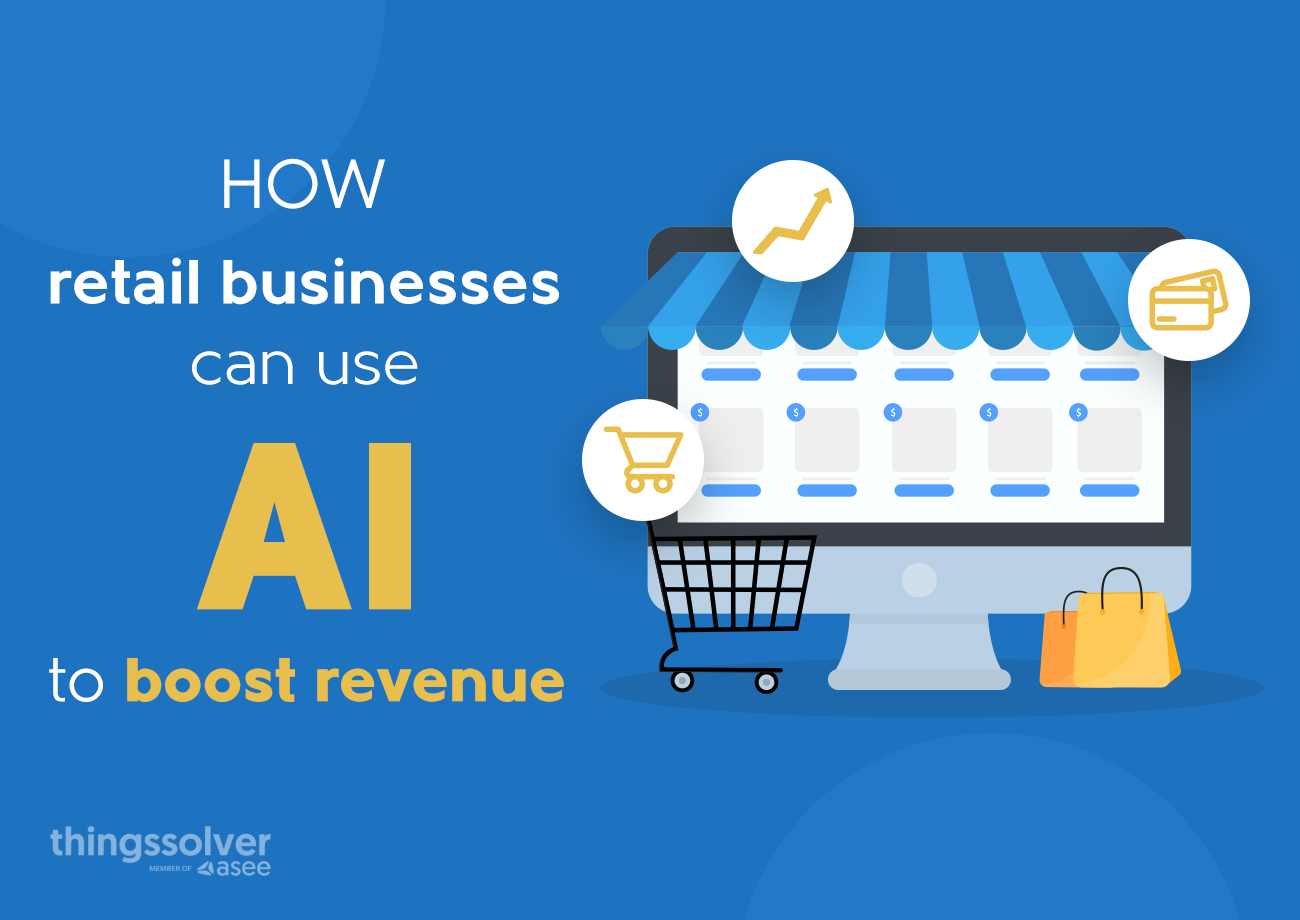How to boost online sales this holiday season with a personalized shopping experience
The holiday season is the most crucial period for retailers. Besides high sales volume, it is also an opportunity to…
Read more06. 03. 2023.

Retail organizations worldwide are increasingly seeking to understand how AI is transforming the industry. One thing is for sure – to stay competitive in today’s market, retail businesses must carefully focus on consumers, prioritizing profit and (labor) productivity.
This is exactly where Artificial Intelligence (AI) can play a crucial role in supporting various business operations and optimizing business processes that will drive better productivity and profits.
Artificial Intelligence (AI) has the potential to help retail businesses grow revenue in several ways. If we take a look at the expert predictions, AI services in the retail sector are expected to grow from $5 billion to over $31 billion by 2028.
To show you how this trend can make a significant impact on retail businesses and jobs in the retail sector, we will explain why AI is important for retail and explore how AI can help retail businesses boost revenue.
Shall we?
One survey by Capgemini found that about 76% of consumers expect companies to understand their needs and expectations. Yet, only 49% believe that retailers are currently doing so.
So, on the one hand, there’s the retail industry which aims to offer personalization by operating with massive volumes of data and complex customer interactions.
On the other hand, we have AI’s capabilities to analyze vast datasets, recognize patterns, and derive valuable insights.
You can see how AI can align perfectly with the demands of the incredibly demanding retail landscape. Investing in AI-powered solutions, retailers can:
AI’s potential to revolutionize customer experience, build customer loyalty, optimize operations, and drive profitability makes it indispensable for retail businesses.
Embracing AI technologies can empower retailers to harness the power of data, make informed decisions, and stay competitive in an increasingly dynamic and customer-centric industry.
AI can help retail businesses increase their revenue in the next few years. Let’s take a look at how AI affects different aspects of the retail industry, including:
Let’s explore each aspect a bit further.
In the highly competitive retail landscape, providing exceptional customer experience is paramount. AI can play a transformative role in this.
For example, personalized marketing uses customer data and behavior to deliver individualized marketing messages and product recommendations.
It can be a powerful tool for increasing sales and revenue – it targets specific customers with relevant products and promotions in a fully personalized way.
There are several ways for you to use AI to enable personalized marketing:
As you implement a more personalized customer approach, you’ll witness the (positive) results in customer experience. Make sure to always provide your customers with personalized product recommendations over the channel customers prefer.
Another way you can use AI to your advantage is to improve inventory and chain management. In this case, Ai can assist by:
To help you forecast demand and adjust inventory levels accordingly, AI will analyze data from a variety of sources, including sales data, social media trends, and weather patterns. This can help you reduce inventory costs and prevent overstocking or understocking of products.
Additionally, AI can assist in optimizing your supply chain by providing real-time data on shipping, delivery times, and logistics.
This is a great way to improve the efficiency of your supply chain, reduce shipping times, and minimize waste.
Before we explain how AI can revolutionize the way you optimize your pricing strategies, let’s explore two key concepts – pricing and dynamic pricing.
Pricing is the process of determining the monetary value of products or services a business offers. It involves setting a specific price point that customers are willing to pay while considering the company’s profit margins and competitive positioning.
Dynamic pricing is a strategy where prices are adjusted in real-time based on various factors such as demand, supply, competitor pricing, and customer behavior.
Now, here’s how you can optimize your pricing strategies:
Improving sales and growing revenue is a must for any business. Yet, having proper fraud detection and prevention approach that safeguards a customer is the backbone of a customer’s trust in your brand.
This is where AI comes to play!
By leveraging advanced algorithms and machine learning, AI can effectively identify and mitigate potential fraud, keeping both your customer and you safe.
AI can help to secure customer trust in your company in several ways:
Data analytics plays a crucial role in the retail industry and underlines everything else we discussed previously. Basically, you can’t provide more personalized products or optimize your prices if you don’t have real-life data to base them on.
Moreover, thanks to AI-powered advanced data analytics, you can:
As you can see, data analytics is truly of utmost importance for your retail business. Not only does it analyze vast amounts of data, but it also enhances the efficiency and accuracy of data analytics.
By embracing data analytics and AI-driven solutions, you can stay ahead of the competition and thrive in an ever-evolving market.
Overall, AI has the potential to transform and benefit the future of retail businesses by:
This is a new opportunity for retail businesses to create a more efficient and enjoyable experience for customers while also increasing profits and remaining competitive in an ever-changing economy.
If your goal is precisely that, don’t wait long before you invest in a tailor-made AI solution!
The holiday season is the most crucial period for retailers. Besides high sales volume, it is also an opportunity to…
Read moreA closer look at analytics that matter You’ve trained your AI agent. It runs. It talks. It reacts. But does…
Read moreImagine having a team of top chefs, but your fridge is packed with spoiled ingredients. No matter how talented they…
Read more